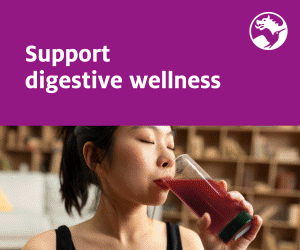A new clinical trial study, published in Frontiers in Nutrition, showed that four weeks of daily, 8mg astaxanthin supplementation offset exercise-induced decreases in 20 plasma immunoglobulins. The findings were especially significant for levels of IgM, the predominant antibody produced early in an immune response.
This was a unique human clinical trial that measured physiological responses to astaxanthin supplementation after intense exercise using untargeted proteomics (500 proteins across all samples) and a targeted, comprehensive panel of oxylipins and cytokines.
The randomised, double-blind, placebo-controlled, crossover design study (two 4-week supplementation periods and a 2-week washout period) was conducted on 19 healthy, non-smoking male and female runners, ages 18 to 57. Blood results found that astaxanthin supplementation (8 mg/d, 4 weeks) prior to 2.25-hours of running at 70% maximal oxygen consumption rate (VO2max) had a strong impact on balancing post-exercise drops in 82 immune-related proteins (20 significantly). Supplementation did not show differences from placebo in plasma DOMS, creatine, cortisol, six cytokines and 42 oxylipins.
Providing a natural, plant-based solution with anti-oxidative and anti-inflammatory properties can help active individuals feel and perform at their best,
Astaxanthin is a dark red keto-carotenoid found in a variety of foods such as salmon and shrimp, and produced by algae, that holds anti-oxidative and anti-inflammatory properties. Astaxanthin cannot be synthesised by humans, so it must be consumed in the diet via food or supplements.
Lycored uses algae-derived (Haematococcus pluvialis) astaxanthin carotenoid, which has been linked to cellular health, skin health, heart health, joint health, immune systems support and mitigation of oxidative damage and inflammation, according to Elizabeth Tarshish, PhD, Head of Claims and Clinical Affairs at Lycored. “From this study, we learned that during recovery, algae-derived astaxanthin normalises 20 immunoglobulins in those with increased inflammation from recurrent physiological stress–runners. Our hope is that providing a natural, plant-based solution with anti-oxidative and anti-inflammatory properties can help active individuals feel and perform at their best, during and following exercise.”




